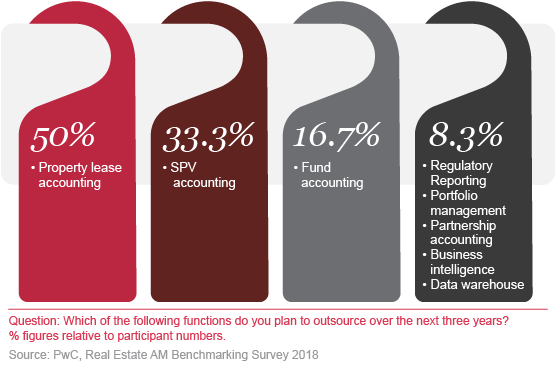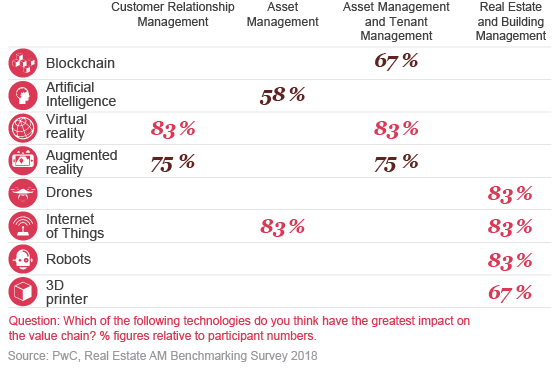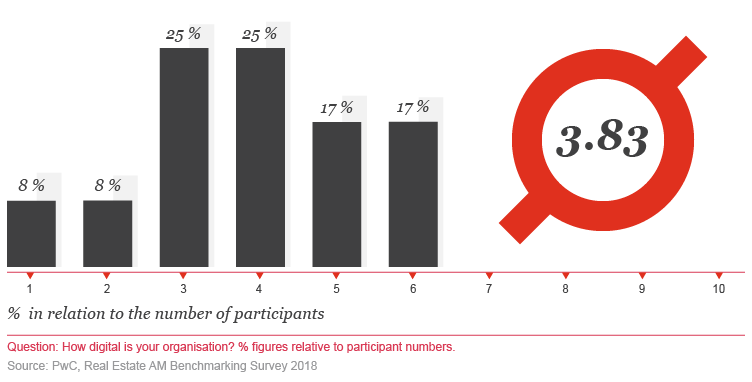The real estate industry is optimistic
Profound changes are likely by 2020 as digitisation rolls out. The real estate sector’s long-term challenges are driven by digitisation, as in many industries. New concepts such as ‘shared working’ and ‘space as a service’ or the use of data and analytics should accelerate the rise of new business models. In the third edition of PwC’s benchmarking study, we summarise current developments as well as opportunities and trends on digitisation in selected areas of the value chain as seen by asset managers.
With participants totalling 18 asset managers with assets under management (AuM) of around €416 billion, the study represents a qualitative section of the industry in Germany.

Developments in outsourcing and the IT landscape
The trend towards outsourcing continues to be undiminished – dominance of customised standard solutions increases.
A slight change can be observed in comparison with the previous year. Facility management and, to a lesser extent, property management continue to have the highest outsourcing rates (facility management outsourced 92.3% and property management 84.6%).
Half of the participants cited property and asset accounting when asked what services could be outsourced in the next three years. In second place was special purpose vehicle (SPV) accounting at 33%, and in third place fund accounting at 17%. Many services will still be provided in-house in the near future.
Digitisation will fundamentally change IT landscapes in the companies. Cloud and big data applications are already widespread. Other new capacities such as data mining are garnering increasing interest.

“Many projects in the real estate segment exhibit a high degree of manual activities, such as simply typing up figures. In the future, such tasks can be easily completed by artificial intelligence. It will become the advisor’s right-hand man.”
Main findings on the digital transformation
Out of the eight essential technologies, IoT, VR, and AR are currently most important in changing the asset managers’ core processes.
The most disruptive technologies in the next five years are, firstly, the Internet of Things (IoT), secondly, artificial intelligence (AI) and thirdly, robots. In the future, the workplace will be increasingly mobile and paper-free thanks to increased usage of cloud technologies, digital platforms and virtual data rooms.
In our survey we were interested in which of these eight essential technologies will change the different processes of asset managers from front office to back office. One out of three survey participants expects that the IoT and augmented reality (AR) will provide additional impetus.

Digitisation in the real estate industry is only just beginning
It wants to evolve to the Digital Player stage by 2020.
How do the participants rate their organisation’s digital maturity? The companies surveyed rated the real estate industry as 3.83 on a scale from 1 to 10; none of the companies rated itself above 6.

Most of the real estate industry companies surveyed are currently at stage 2: Digital User. This also corresponds to the market appraisal. All participants have set themselves the ambitious target of evolving to the Digital Player stage by 2020. They will face a wide variety of challenges along the way which they will have to overcome pro-actively with high levels of flexibility. The study looks in more detail at the results in the individual dimensions of the digital transformation (digital maturity model).





